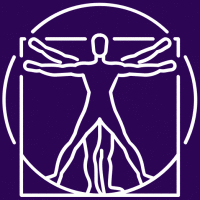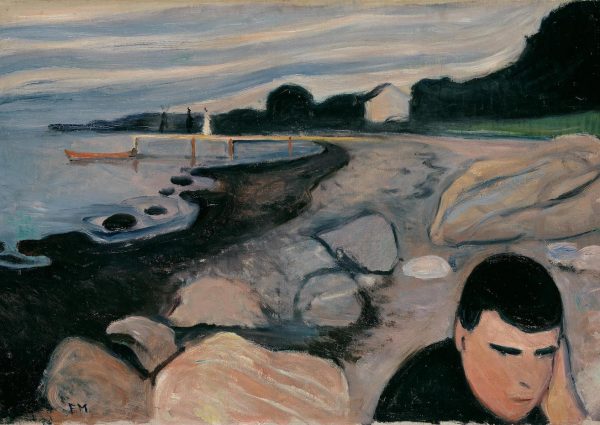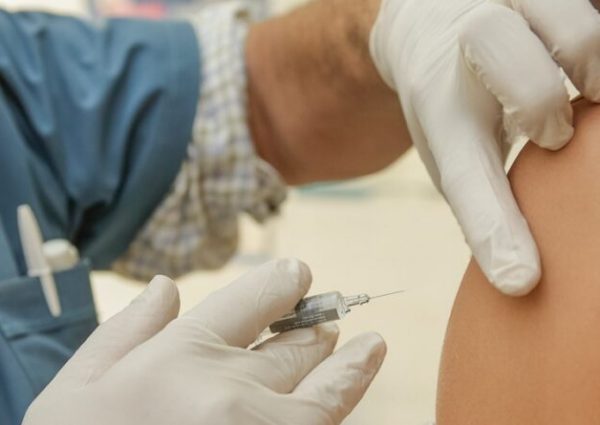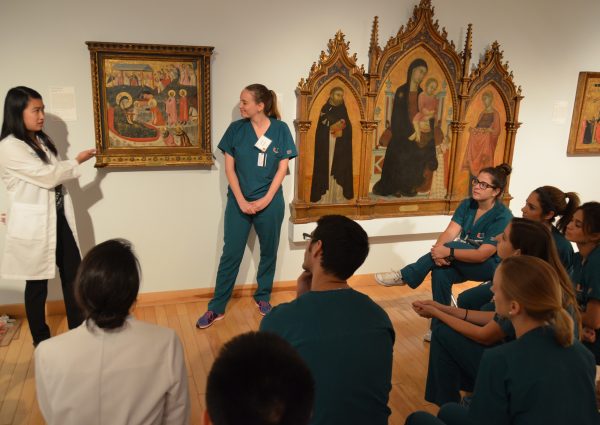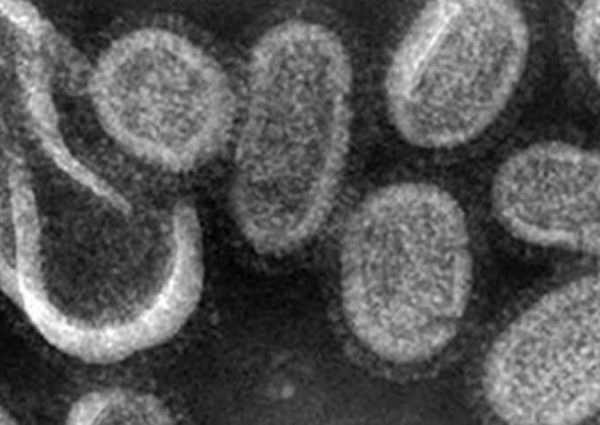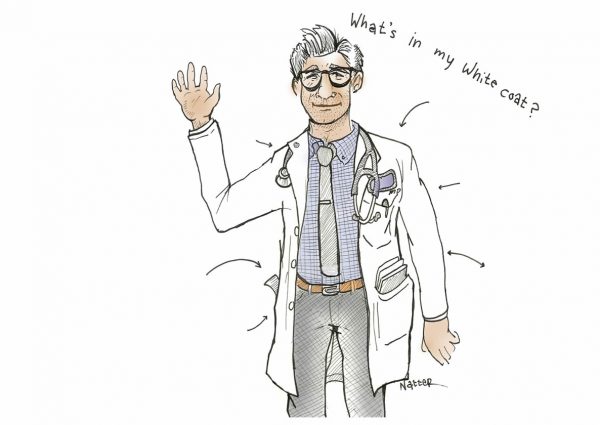INSTITUTION: Northeastern Ohio Universities College of Medicine
PRESENTER: Martin Kohn, Ph.D., Associate Professor, Behavioral Sciences and Director, HumanValues in Medicine Program, NEOUCOM
PROGRAM DIRECTOR: Martin Kohn, Ph.D., Director of the Human Values in Medicine Program (email: mfk@neoucom.EDU)
ENROLLMENT: BS/MD; selective; limit:12
SEMESTER: Winter 2000
January 24, 26, 31, February 2, 7, 9, 14, 16 (Monday/Wednesday afternoons 1:00 – 5:00 p.m.)
LEARNING GOALS: What does it mean to be a good doctor? Does it require a kind of heroism? A willingness to always strive toward the highest ideals? An ability to engage one’s conscience in reflection of everyday practice? Does it means knowing toward what ends one strives? Toward knowing what to pay attention to? Is there only one type of good doctor? Or are there variations? The good doctor may be one who understands the suffering of patients and knows how illness affects the stories her or his patients lives; how do illness and suffering affect the life of the good doctor? And how does the good doctor shape the greater community in which he or she practices? The course readings and participant writing will serve as the means of addressing the questions above and many others.
METHOD OF INSTRUCTION: Discussion
OUTLINE:
HEROISM, ALTRUISM AND THE REAL WORLD
SESSION 1 – January 24
Introductions
Stories of conscience and heroic acts in ordinary and extraordinary circumstances
Writing exercise: “Stories of Conscience”
Readings:
Kanafani – “Death of Bed Number 12”
Forster – “The Machine Stops”
McIntyre – “Of Mist and Sand and Grass”
SESSION 2 – January 26
Continue discussion of stories
Share “stories of conscience”
Turn in critical response journals
Discuss individual or small group project
SESSION 3 – January 31
Discuss theoretical works
Choose individual or small group project
Readings:
Sanders – “The Most Human Art”
Komesaroff – “From Bioethics to Microethics”
Kohn – “Beyond Altruism”
Coles – “Medical Ethics and Living a Life”
PAYING ATTENTION TO ENDS, TO SELF
SESSION 4 – February 2
Discussion of the physician’s character
Turn in critical response journals
Readings:
Kass – “Professing Medically”
Broyard – “Doctor Talk to Me”
O’Connor – “The Lame Shall Enter First”
THE STRUGGLE TO BE A GOOD DOCTOR: STORIES BY AND ABOUT DOCTORS
SESSION 5 – February 7
The images of healers
Readings:
Selzer – “Brute”
Williams – “A Face of Stone”
Mates – “Laundry”
Shem – “HMO, DSM, Goodwill Toward Men”
and other stories/poems
Exercise: A letter to yourself, from yourself, “after” 25 years of practice
Videotape: Mrs. Tucker, Her Daughter Emily and Dr. Duff
PATIENTS, FAMILIES AND THEIR STORIES OF SUFFERING
SESSION 6 – February 9
Patients’ and Families’ Stories of Suffering
Readings:
Frank – “Illness as a Call for Stories”
Cassell – “The Nature of Suffering”
Viramontes – “The Moths”
Chekhov – “Misery”
Hall – Poems from Without
Videotape: She’s Finally Free
Project presentations
Turn in critical response journals
THE GOOD DOCTOR AND THE WIDER WORLD
SESSION 7 – February 14
Discussion of justice and community
Readings:
S. Jackson – “The Lottery”
U. LeGuin – “The Ones Who Walk Away from the Omelas”
A. Walker – “Strong Horse Tea”
Project presentations
SESSION 8 – February 16
Examining one’s calling to help others
Readings:
D. Hilfiker – “Avoidance”
K. Vonnegut – “Fortitude”
A. Jonsen – “The Good Samaritan as Gatekeeper”
Writing Exercise; Write a parable or fable illuminating your notion of a just health care system
Project presentations
Turn in critical response journals
REQUIREMENTS: Attendance, participation, critical responses to the readings, short writing
exercises, and independent project
TEXTS: Readings provided.
